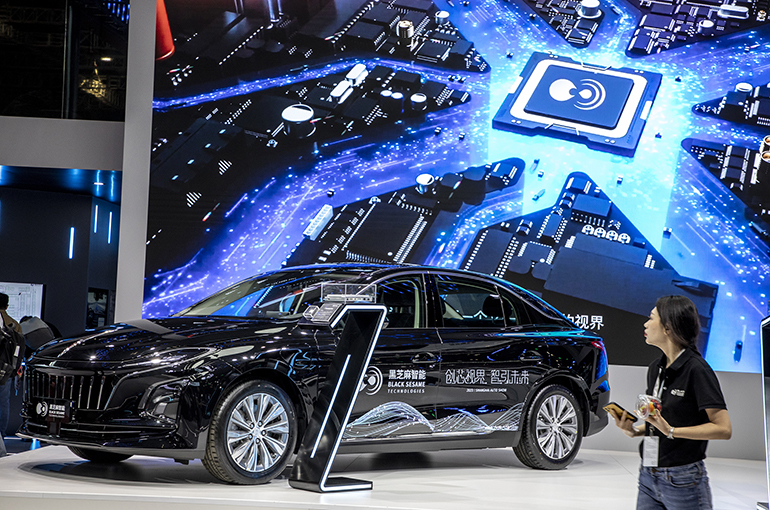 Chinese Carmakers' Autopilot Demand Makes Room for Low-End Chips
Chinese Carmakers' Autopilot Demand Makes Room for Low-End Chips(Yicai) Nov. 23 -- Chinese auto vendors' huge demand for chips and their cost pressures has stimulated demand even for low-level semiconductors, Yicai learned from insiders.
The auto industry takes into account performance and cost when buying modules for autonomous driving, shifting from strong specifications or high performance, Yang Yuxin, chief marketing officer at AI chipmaker Black Seasame Smart Technology, told Yicai. Chips with computing power of around 50 tera operations per second can basically meet all major functions required by a Level-2 autonomous driving system or higher, per the CMO.
Before last year, auto vendors used to equip their products with high-quality chips -- the stronger the better --as application scenarios were still unclear, Yang said, adding that this year, new models of Level 2 or Level 2+ have become mainstream among vendors who are looking for the optimal performance-cost ratio.
Customers that need smart driving systems of Level 3+ are still few and far between and even their user experience is actually not so good, Huang Huiwei, market director at Axera Semiconductor Ningbo, another supplier of automotive chips, told Yicai. Hence, the biggest demand is for Level-2 advanced driver assistance systems.
AI chip developer Horizon Robotics still mostly delivers basic products. The company has delivered four million chips in its Journey series this year, and shipments of Journey 5 chips are expected to exceed 250,000 units, according to Zhang Yufeng, head of the smart auto business division. In comparison, the firm has shipped over one million Journey 2 products, which are of a higher performance-cost ratio.
Chipmakers develop high-end products to meet their long-term development goals while making low and middle-level chips to meet most basic smart driving requirements as the latter categories have a more defined user experience and performance-cost ratio, Yin Lingbing, general manager for chip planning and marketing at Horizon, told Yicai.
One of the considerations is that high-end chips tend to be imported. In the first half, more than half of Chinese cars with the standard function of navigate-on-autopilot carried Nvidia chips whereas almost 31 percent of the total had chips made by Horizon and some 4 percent of the total had semiconductors made by Huawei Technologies, according to data from Gaogong Industry Research.
Nvidia's high-end system-on-chips that boast over 50 teraOPS occupy over four-fifths of the Chinese market and the global market, based on data from Frost & Sullivan. Meanwhile, such products made by Hozrion and Black Seasame only seize 6 percent and 5 percent of the global market, respectively.
Editors: Tang Shihua, Emmi Laine